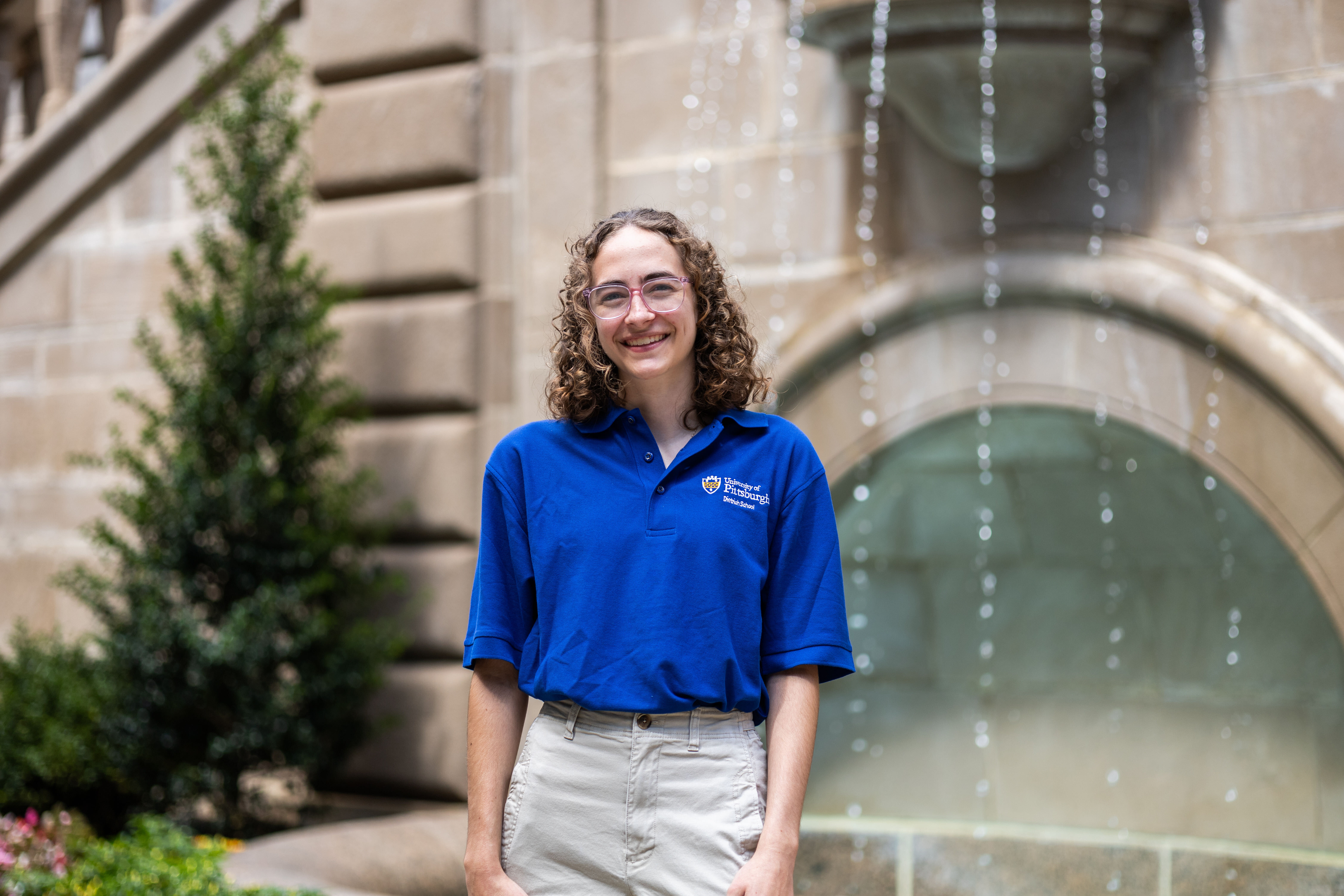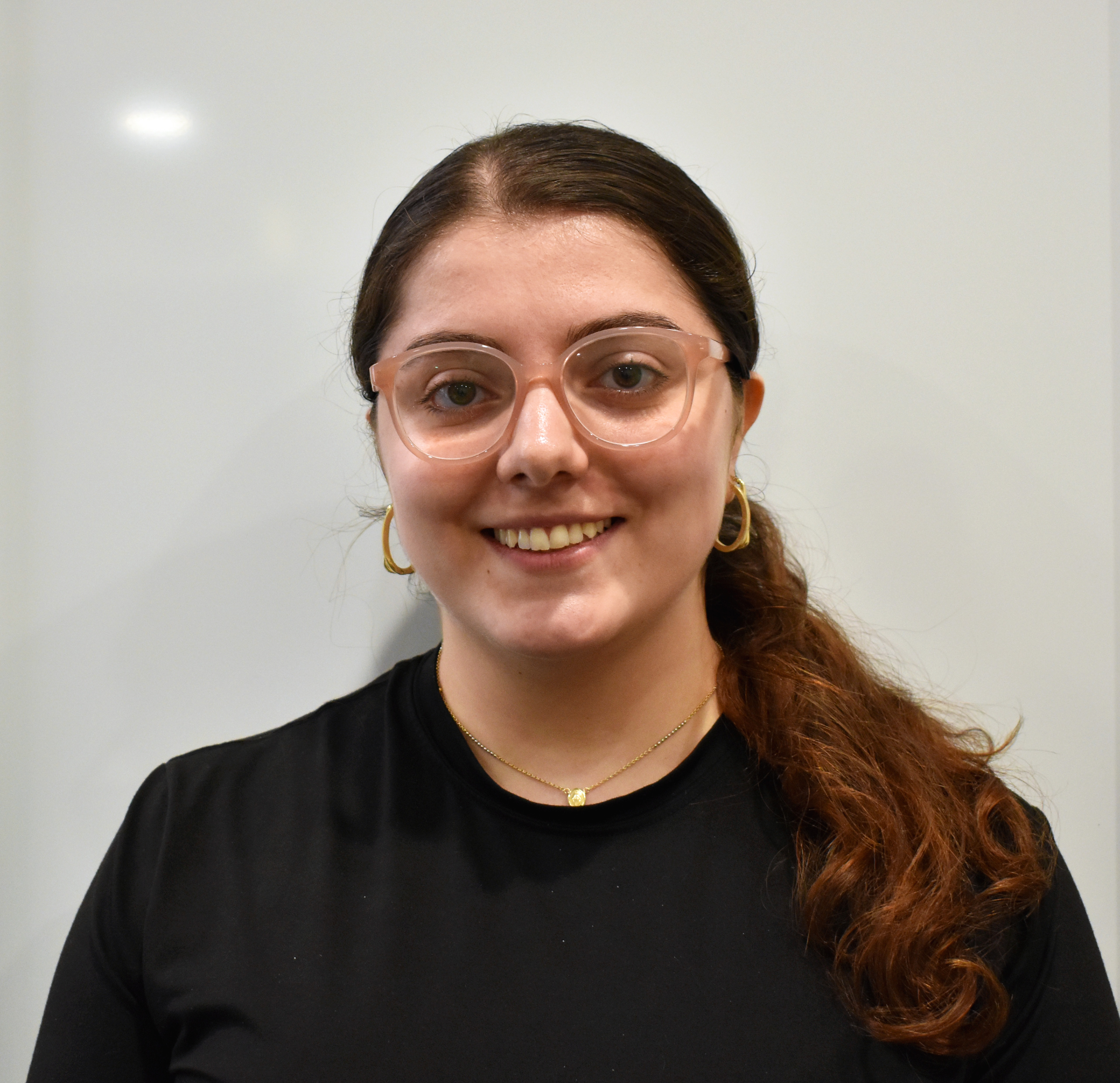Undergraduate Spotlight
Madison Martin: Finding Chemistry Across the Pond

“It was really cool to see how chemistry is taught in a different country.”
Doing theoretical chemistry research sounds daunting to many, especially to anyone in the first semester of college, but Madison Martin felt excited to join a research group so early.
“I went in with no coding experience, and Dr. Jordan was excited I wanted to learn,” Martin says. “He also taught me a lot of pchem concepts and when I started I was like ‘oh my goodness this is all so much’ but looking back he did a really good job progressing me through the levels and didn’t overwhelm me with too much information.”
In her four years in Ken Jordan’s lab, Martin had the chance to contribute to a wide range of projects, from developing a Python Monte Carlo algorithm to investigating the polarizabilities of the hydrogen atom.
Martin also studied abroad in London last spring semester, where she took pchem 2, a drug discovery class, and several gened courses. She encourages other STEM majors to consider going abroad as well, even if it might seem more challenging.
“It was really cool to see how chemistry is taught in a different country. I had lectures from so many different professors so just getting exposed to different ways of seeing things,” Martin says. “And getting to interact with students from literally all over the world who were also studying abroad in London at King's College was the coolest thing.”
Whether in London or in Pittsburgh, Martin has made the most of the opportunities available to her. Looking back, she credits the Pitt chemistry community with giving her the resources and encouragement to succeed.
“Pitt chem is a great place. I think there's a lot of resources, whether it's directly through the chemistry department or just through the Dietrich school with tutoring,” Martin says. “I think the professors are all they want you to learn, and it's so easy to get involved with research. There's a lot of opportunities if you want to take advantage of them, they're there for you.”
Graduate Spotlight
Sara Chedid: Boosting BioChem

“I just felt like I belonged here. There was just chemistry.”
Sara Chedid plans on defending her PhD this summer, and now, getting ready to matriculate, she reflects that Pitt was the perfect place for her to grow into an independent chemist.
“It honestly is such a welcoming environment,” Chedid says, “That was one of the factors that ended up helping me choose Pitt. I just felt like I belonged here. There was just chemistry.”
A member of the Islam lab, Chedid designs small molecule inhibitors and PROTAC degraders targeting mutant isocitrate dehydrogenase (mIDH). mIDH produces D-2-hydroxyglutarate (D-2HG), an oncometabolite which acts as a competitive inhibitor of 2-ketoglutarate (2-KG) dependent enzymes. By designing PROTACs targeting mIDH, it is possible to use host cell machinery to degrade the mutants, preventing the production of D-2HG, and restoring 2-KG levels in cells.
Chedid’s reason for pursuing chemistry comes from a desire to make a real impact. Motivated by a friend with cystic fibrosis, Chedid realized her impact would be broader if she were developing pharmaceutical therapies than if she were the doctor prescribing those medications.
“Originally, grad school wasn’t part of the plan. I wanted to go to medical school, but I was really close to a family friend who has cystic fibrosis and got to see how it affects her,” Chedid says. “I thought ‘okay, if I go to medical school, I can only reach the few patients I have, but if I work in a pharma company where I’m producing all of these therapeutics, I can reach a larger population than if I was a doctor.’”
Inspired by medicinal chemistry, Chedid wanted a graduate program with strong ties to a prestigious medical system so she could see her work directly implemented.
“UPMC was another factor that pushed me towards Pitt, because I knew I wanted to do something more medically applicable and having a really good hospital literally down the street meant my work would have a more direct impact,” Chedid says. “I do think being connected to UPMC helps elevate the biochemistry research at the university, especially since there is a lot of collaboration.”
Pitt offered a number of strong research groups focused on medicinal and biochemistry, but for Chedid, joining the Islam lab was an easy choice, especially after working with the group during the summer before her first year.
“I was able to get a head start during the summer, and I decided to work in the Islam lab,” Chedid says, “I was able to dive headfirst into research, and I was able to start my very first project. I was synthesizing the small molecule library for the project I am currently on. I really clicked with everyone in the lab and with Islam’s mentoring style, and after rotations I decided to stick with the Islam lab.”
Now one of the senior graduate students in the lab, Chedid tries to cultivate the same welcoming and positive environment which greeted her at the start of her graduate career.
“Honestly, I found the perfect place for myself in this lab. I wouldn’t change a thing,” Chedid says. “And now I get to mentor a first year who is going to take over my project when I leave.”
And Chedid is leaving Pitt with more than a burgeoning chemistry toolkit. She is leaving a confident scientist ready to tackle the challenges that the real world, not just the chemical industry, will throw her way.
“I have always been more extroverted, but being here really brought that out,” Chedid says. “I think that has to do with having to teach, it really brings out who you are, and it forces you to be more comfortable leading a room and being a mentor. Pitt has really helped me become of a leader and be more confident in myself.”

